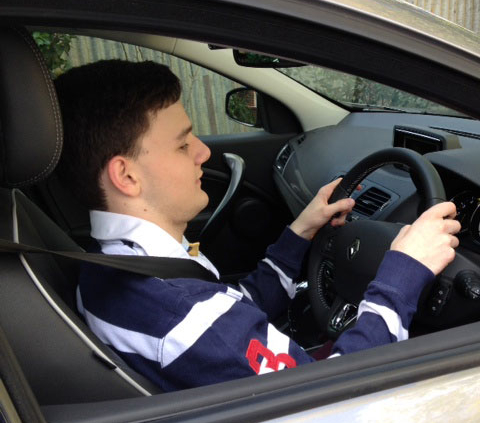
The majority of teenagers will assert that learning to drive not only makes for an exciting experience but also marks a very important moment in life – moving a step closer towards achieving independence. Teens living with a disability are not exempt from this feeling. When it’s time to teach your child to drive, there are a few important things to keep in mind to ensure your child’s safety and the safety of others on the road.
Regardless of your age, preparedness is essential when it comes to driving. For those living with disabilities, the process of how you prepare can be slightly different, but it is certainly equally as important. Teens and new drivers with disabilities must complete a drivers’ assessment prior to beginning lessons in order to determine what sort of adaptive equipment or techniques he or she must use while driving. Steering aids, hand controls, or ramps/lifts may be necessary for your teen to be ready to get behind the wheel and recommendations will be made by the assessment administrator (most often by a certified driver rehabilitation specialist) after a proper exam.
While some teens will require little additional equipment in order to operate a vehicle, others may need more thorough vehicle conversions. If purchasing a new handicap accessible vehicle is not in your budget, there are used options available to suit your child’s needs, as well as rentals and loaners made available by some driving schools.
Qualified driving specialists will be able to relay information on your state’s driving laws for people with disabilities, how to operate the vehicle, as well as how to get in and out of the car without additional assistance, should they need to do so.
Throughout this journey towards adulthood, it’s vital that you remain your teen’s number one fan. A supporting and encouraging environment can dramatically improve your child’s outlook on taking on the road, raising their self-confidence and making them an overall better driver. Remember, learning how to drive takes time, but with your support, the expertise of driving coaches and the accessibility of a modified vehicle, your teen will be on his or her way to being a licensed driver!
The National Mobility Equipment Dealers Association (NMEDA) is an advocate for mobility and accessibility for drivers with disabilities. If you need help with converting or buying a handicap accessible car, truck or van, please consider one of our mobility equipment dealers. Find a dealer near you: https://www.nmedacanada.ca/consumer-resources/dealer-locator/
